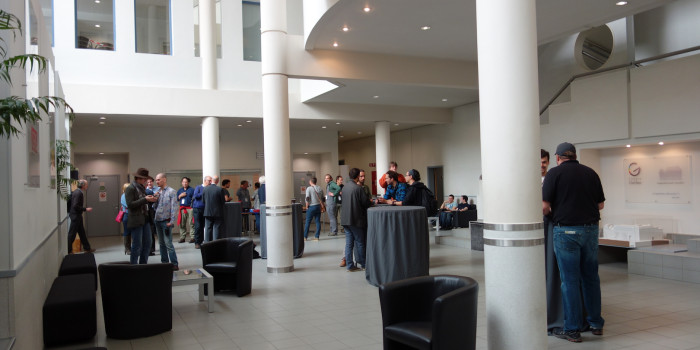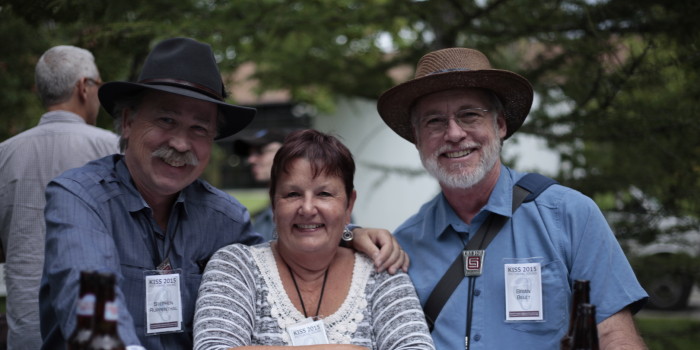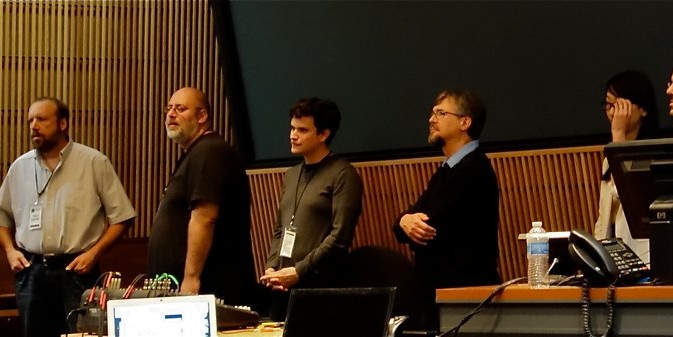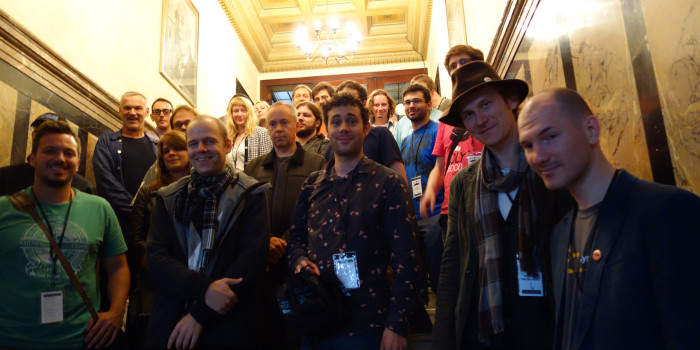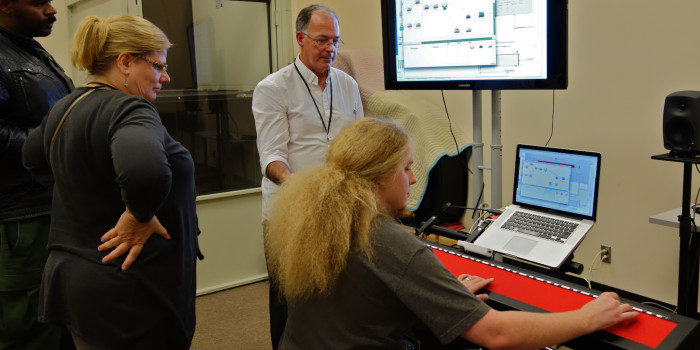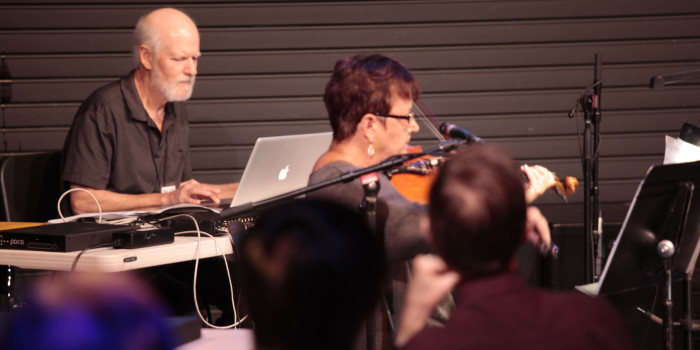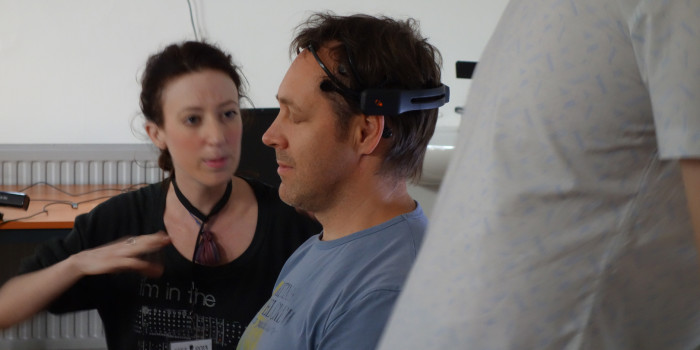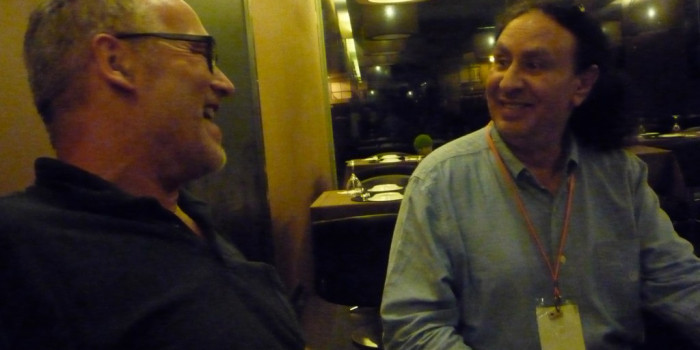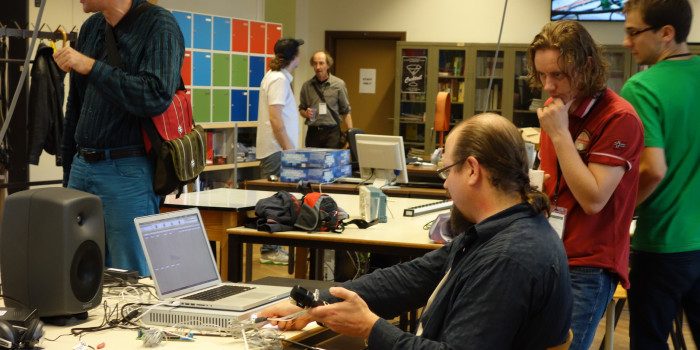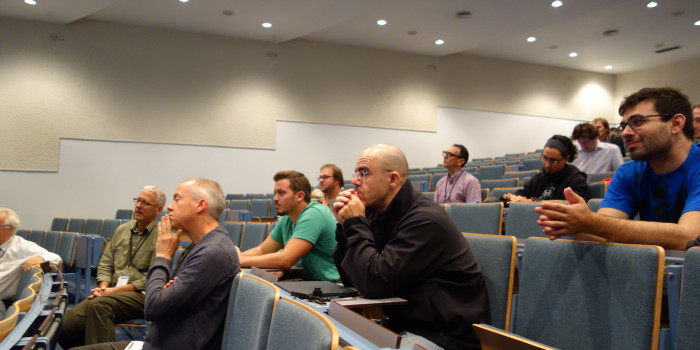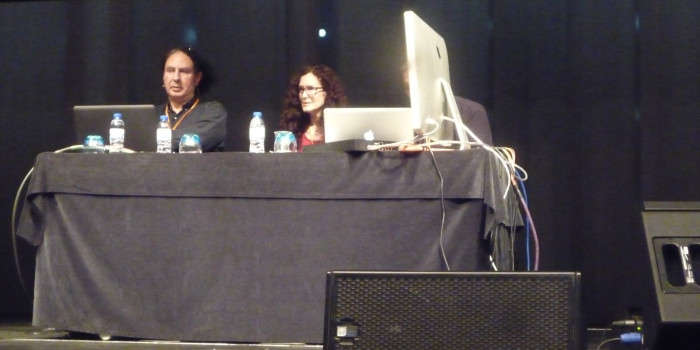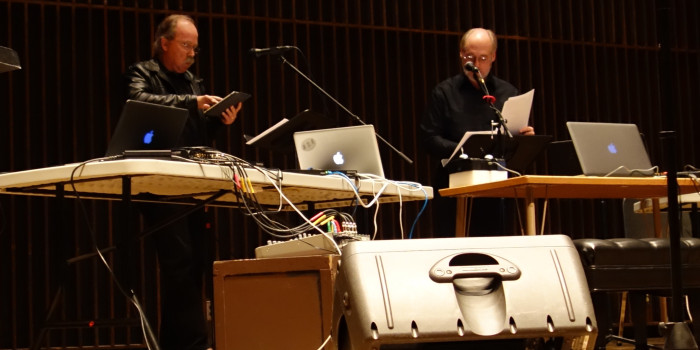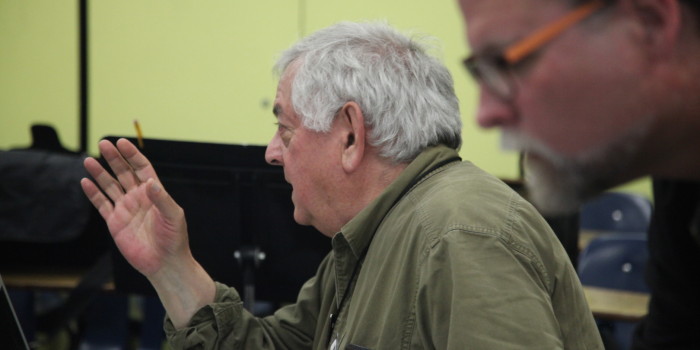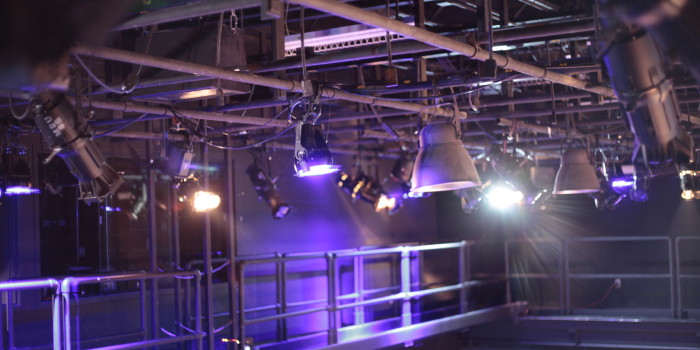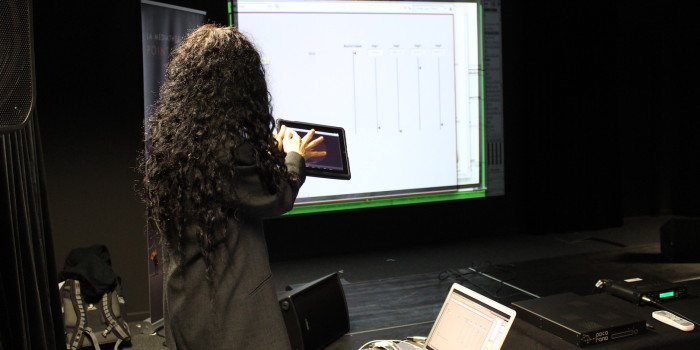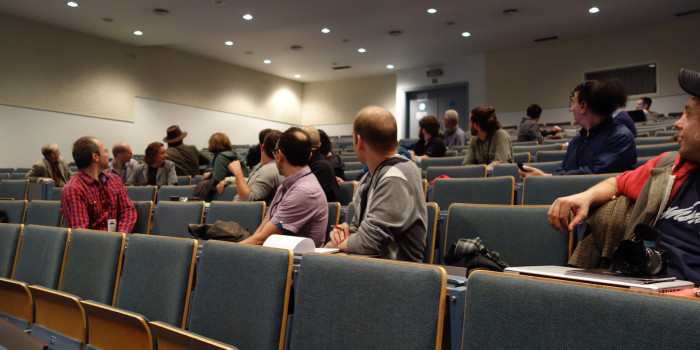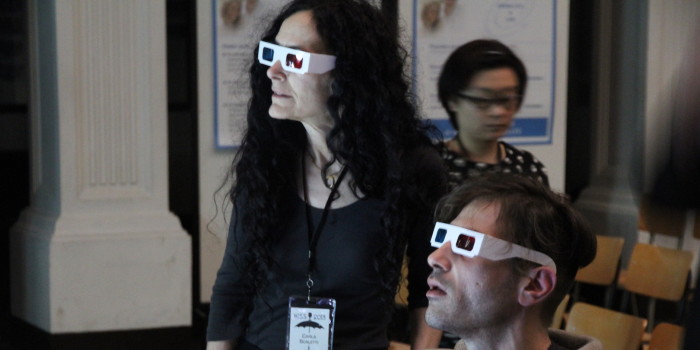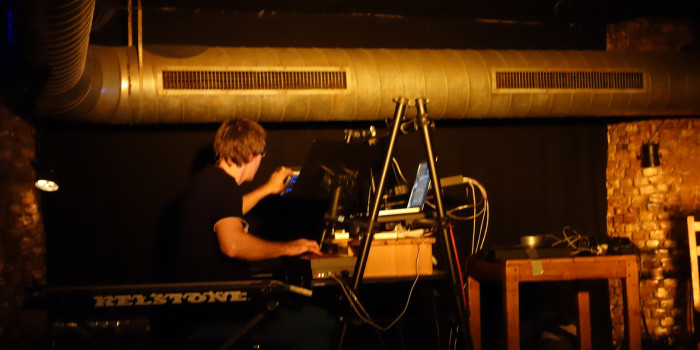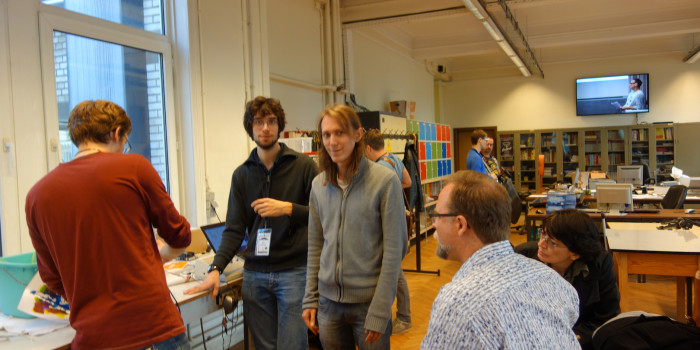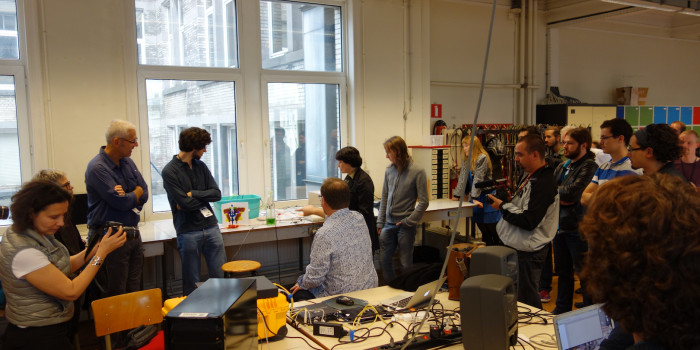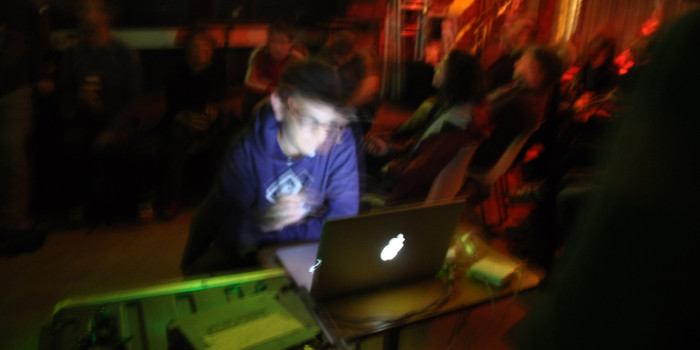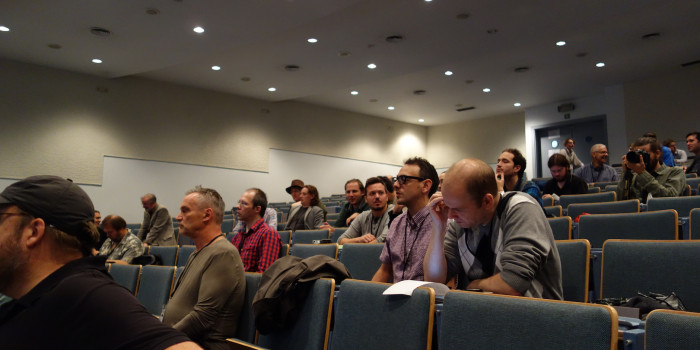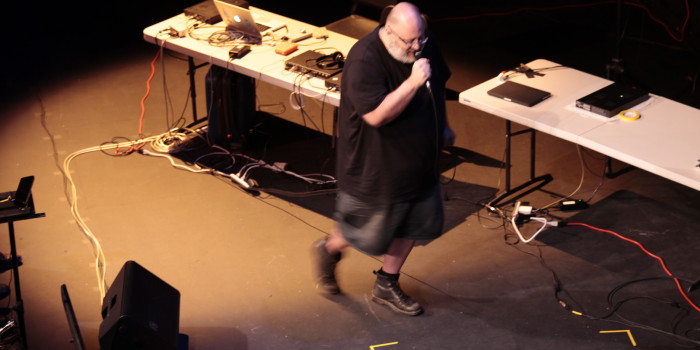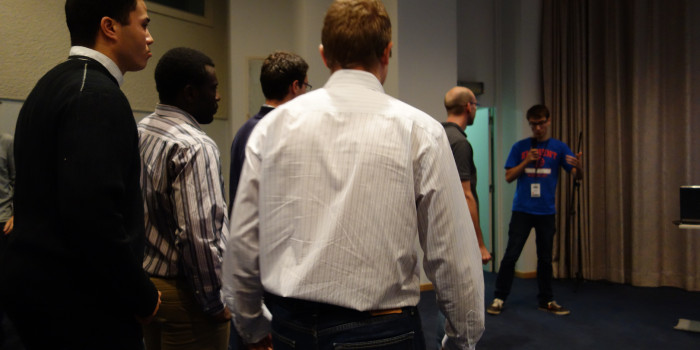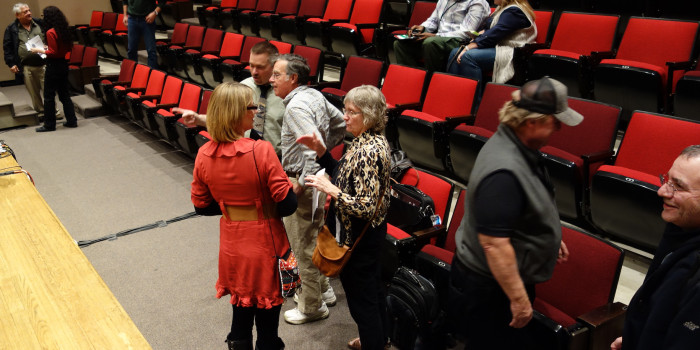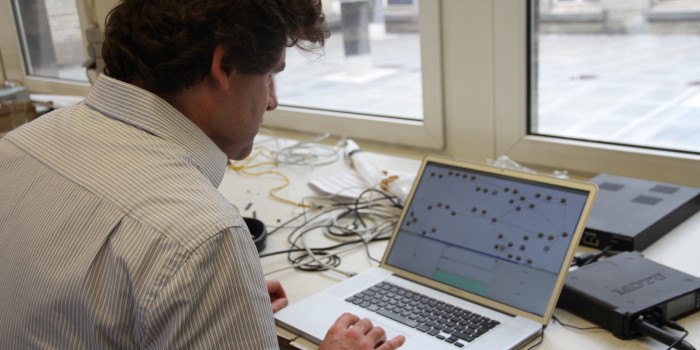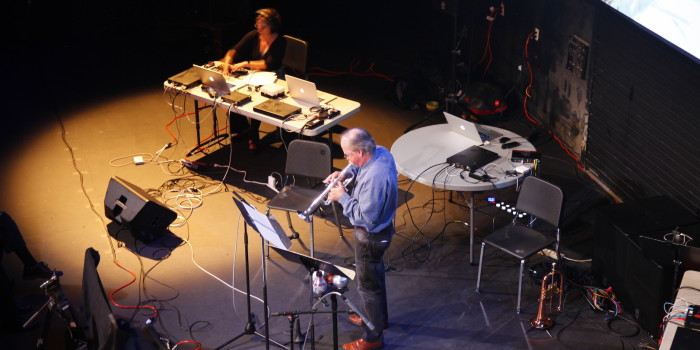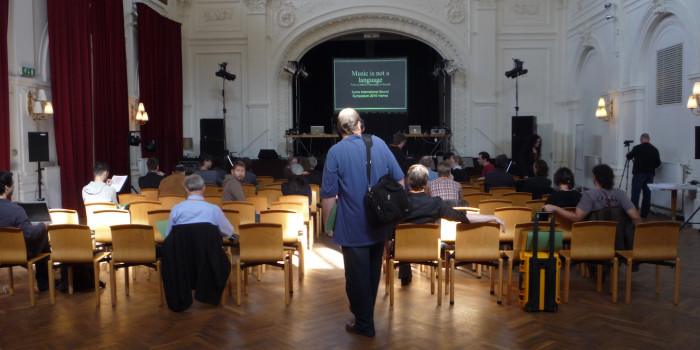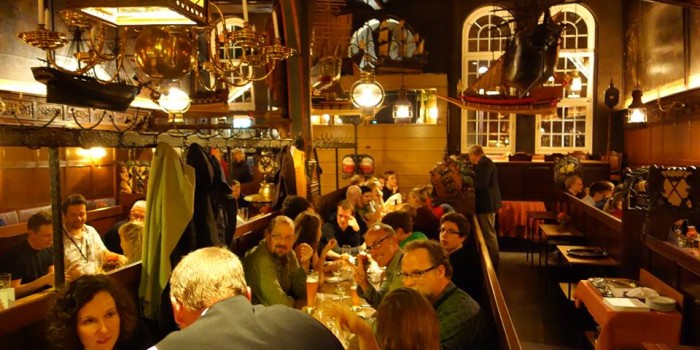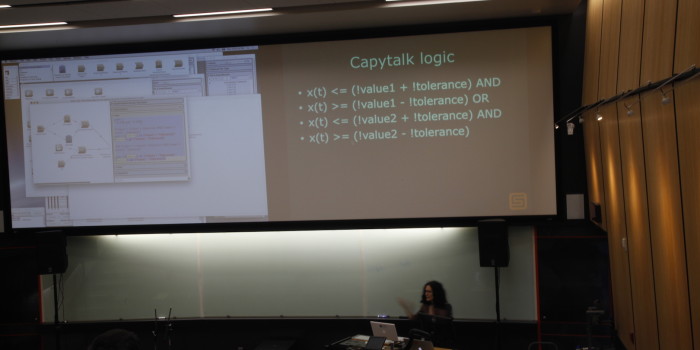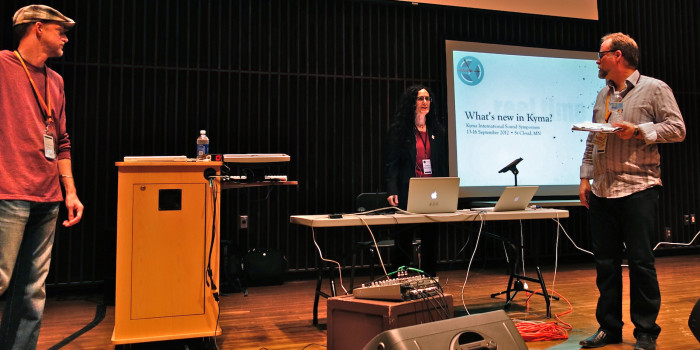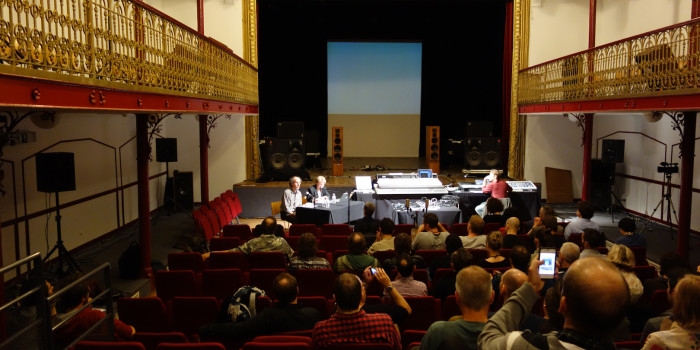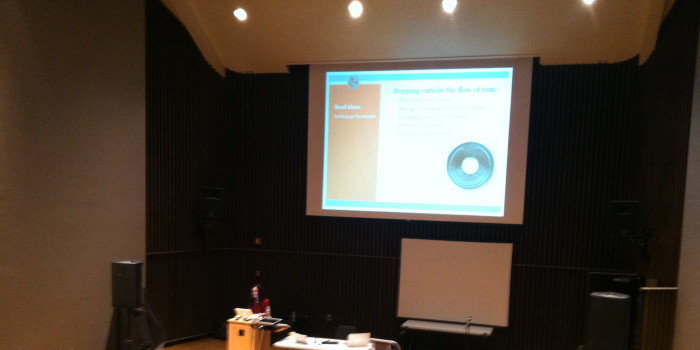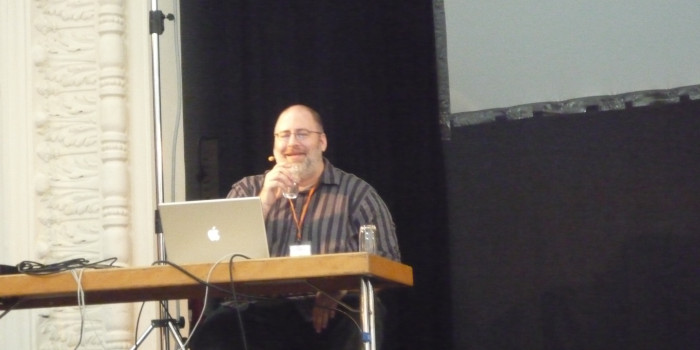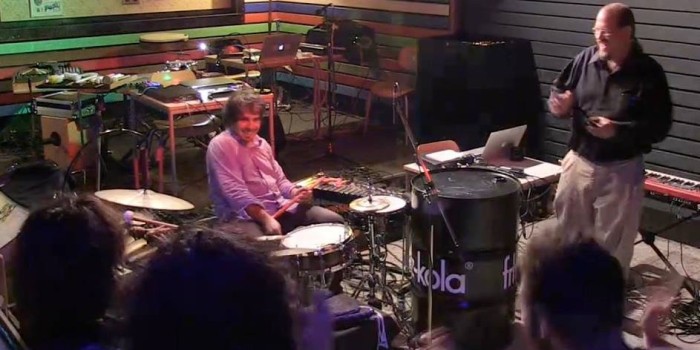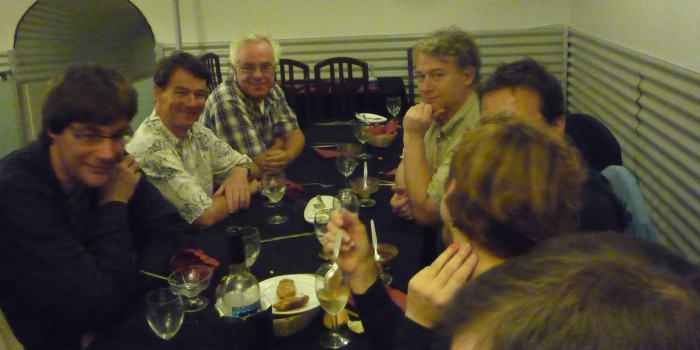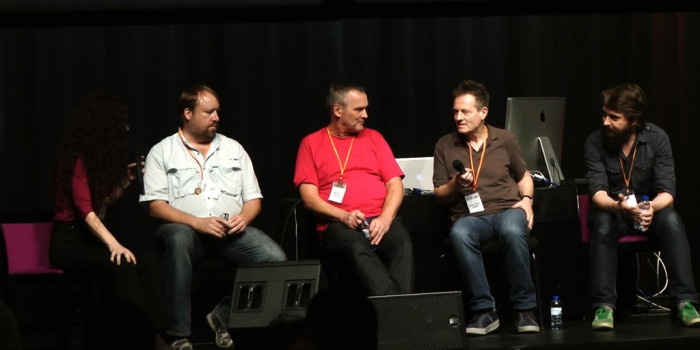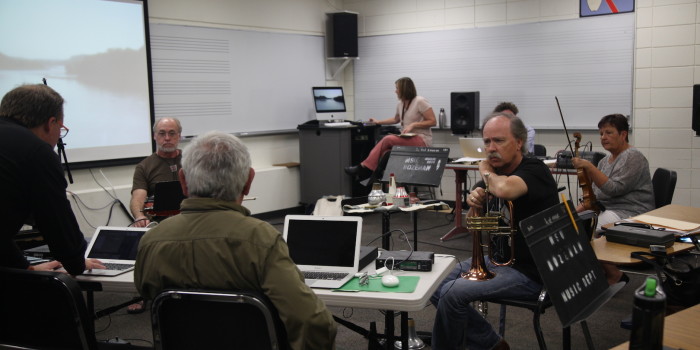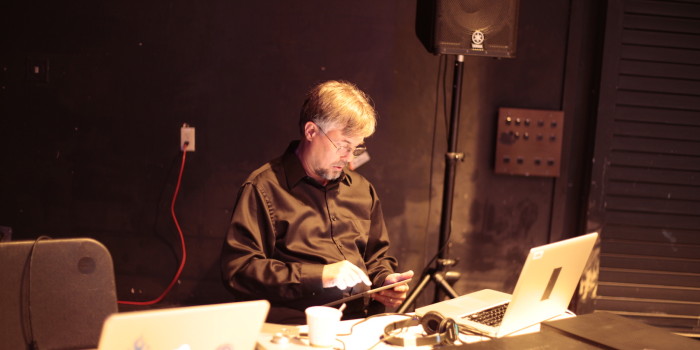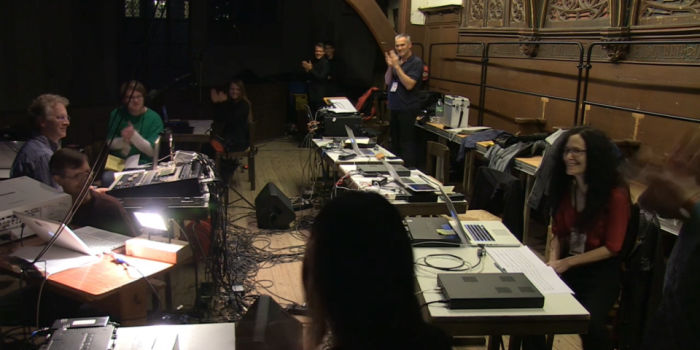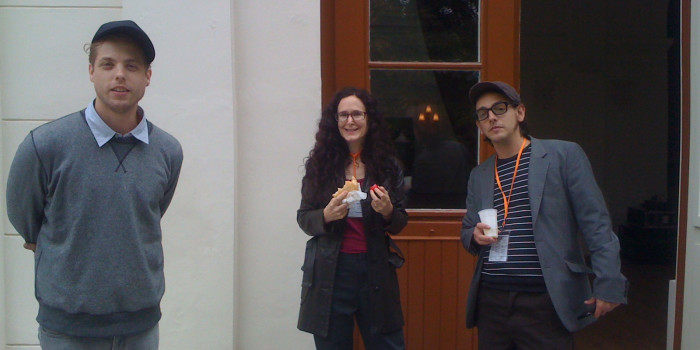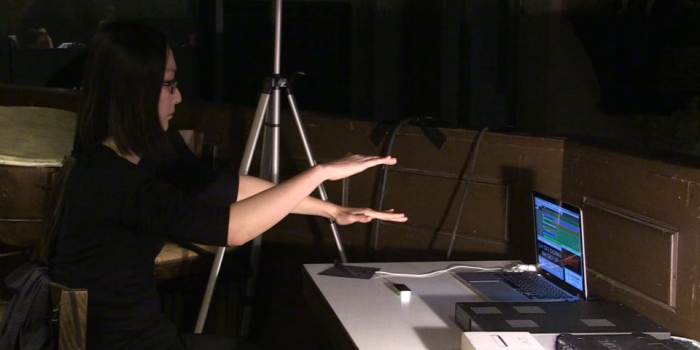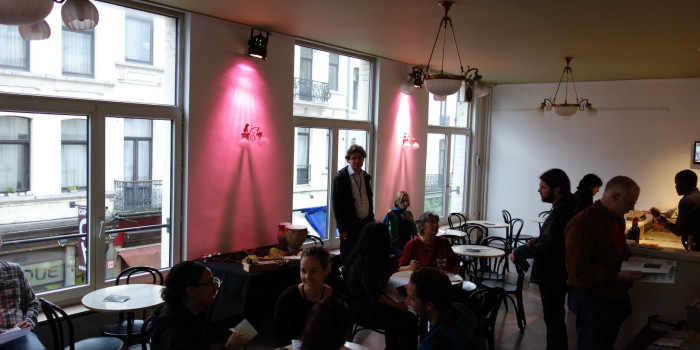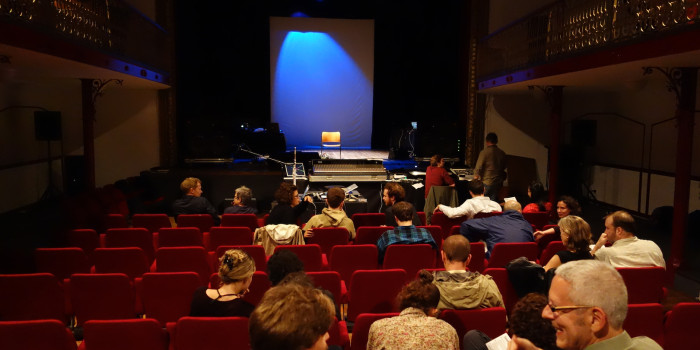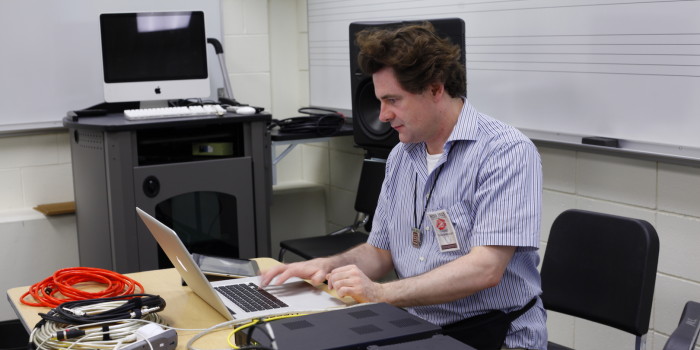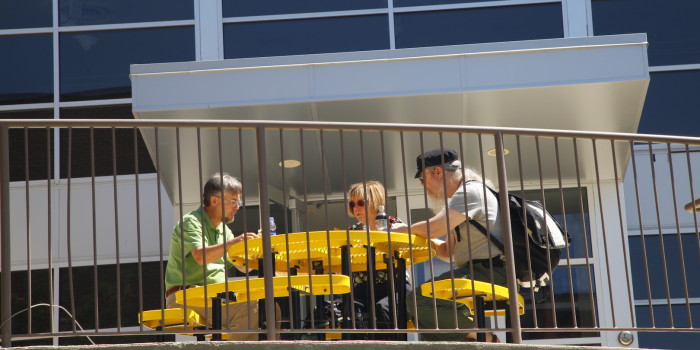The call for proposals is now closed. Here is a link to the program overview.
Symbolic Sound, in partnership with De Montfort University’s Faculty of Art, Design and Humanities; the Music, Technology and Innovation Research Centre, and the Performance Research Group, invite Kyma practitioners to submit proposals for papers, workshops, and live performances for the eighth annual Kyma International Sound Symposium related to the theme: Emergence.
We are seeking proposals for collaborations, projects, new instruments, live performances, talks, or hands-on workshops.
To make a proposal, simply fill out an online questionnaire in one or more of the categories (see the links below). Make a strong connection between your proposal and the symposium theme(s) and you greatly enhance your chances of having your proposal accepted for presentation at KISS2016!
Emergence
Emergence, according to Wikipedia, is a process whereby larger entities, patterns, and regularities arise through interactions among smaller or simpler entities that themselves do not exhibit such properties.
Have you ever noticed that when two or more people collaborate, there is a third “force” or “entity” that is not one or the other — that the whole is greater than the sum of the parts — that there is a kind of hybrid vigor when people from different backgrounds share ideas and creative processes? Emergence suggests creative collaborations, complex systems, performers interacting with each other in real time, and the emergent properties that can arise when independent entities are loosely connected in a network. In keeping with the Emergence theme, there will be an emphasis on ensembles of live performers and cross-disciplinary collaborations.
In conjunction with the Emergence theme, there is a sub-theme: Crossing Boundaries, specifically:
- Crossing geographical boundaries: Leicester is a city where immigrants from multiple regions/cultures/languages have come together to form an emergent culture. Does your work draw inspiration/influences from multiple cultures? Does your work take the audience on a migration or pilgrimage? Are you an immigrant or are you inspired by the courage of immigrants? Do you feel yourself to be a synthesis or an emergent property of two more cultures coming together?
- Crossing disciplinary boundaries: Leicester native, CP Snow, called the worlds of science and art “the two cultures”. Is this still the case? The word “science” wasn’t used much prior to the 1800s; before that, it was “natural philosophy”. Is your work an emergent property of the collision of two or more disciplines? Are you an artist inspired by science (or a scientist inspired by working with artists)?
- Crossing temporal (or historical) boundaries: Can an artist working today draw inspiration from the German Expressionists? It’s an intriguing thought that one could, in some sense, collaborate with an artist from the past! And that there could be a new, emergent art form that results when a contemporary artist “meets” an artist from a previous era. Visit Leicester’s New Walk Museum & Art Gallery’s site to find your inspiration partner from among the German Expressionists.
Proposal Categories
Technical presentation (30’): Share your results with the audience that can best appreciate your struggles and accomplishments — your fellow Kyma practitioners! Have you solved a problem, finished a game, completed a collaborative artwork, completed a successful performance, or collaborated with a researcher from another discipline? Are you particularly proud of some sounds you designed for a film, a game or an advertisement? Are you proposing a live performance for one of the evening concerts? Share your stories, the challenges, the solutions, the lessons learned, and your hopes and plans for the future!
Keynote talk (60’): Keynotes are longer talks specifically related to the theme of the conference and should tie together concepts of emergence, the sub-themes, and/or ideas from computer music, sound design, and Kyma.
Tutorials/workshops (30’): Do you thrive on sharing your love of all things sound and computing? Do you love to explain and to teach? The Kyma community welcomes your insights! Propose a tutorial on some aspect of using Kyma — it could be sound design, it could be related to creating a performance environment for yourself, it could be about signal processing or live improvisation. Do you teach Kyma as part of a course or as a private coach? Are you looking to enhance your reputation as a Kyma guru or to expand your network? Is there something you had to learn the hard way that you’d enjoy helping others learn with the benefit of your hard-won experience? Then we’d love to hear from you!
Emergent Ensembles: Propose to create a “Kyma instrument” that you would like to perform as part of an emergent ensemble. What is an instrument? That will become a point for discussion during KISS2016. Suffice it to say that it is likely to include one or more sources of control data (could be an audio signal, a commercially available controller, or a controller that you created for yourself) and a sufficiently expressive Kyma Sound (or Multigrid or Timeline of Sounds). What is sufficiently expressive? You should, with practice, be able to play a sustained, a staccato, a pitched, a pitch-less, or a sforzando sound; you should be able to play loudly and softly and make gradual or sudden transitions; you should be able to imitate what you hear, or play the opposite of what you hear. Send us the idea you have for an instrument or, better yet, send a link to some examples of you performing your instrument. If you impress the judges, you may be invited to join one of several KISS2016 Emergent Ensembles directed by Robert Jarvis, of the London Improvisors Orchestra.
Online dating (finding your artistic soulmate): Feeling adventurous? Fill out the questionnaire and, based on your indicated interests and sonic personality, we will match you up with one or more collaborators from the De Montfort University and/or Kyma communities. How about working with a game designer, a choreographer, a filmmaker, a live image-mixer, an analog synthesist or a DYI controllerist? Once the match has been made, you can immediately begin a long-distance artistic collaboration culminating in two days of in-person pre-symposium rehearsal time and a live performance or presentation at KISS2016!
Live performances: Propose a live Kyma performance related to the theme of Emergence. If, in addition to proposing a live performance, you also propose a Technical presentation describing some of the challenges overcome and lessons learned while composing this work, you will greatly enhance the likelihood that your piece will be accepted for live performance at KISS2016! (The live performance category is by far the most popular and the hardest one in which to get accepted, so we strongly recommend that you do this!) We welcome live performances in any musical genre; the only constraint is that they include live Kyma sound synthesis or processing.
Club night: Carrying on the tradition established in Barcelona, Vienna, Brussels, and Lübeck, the final night of KISS will be a celebratory event. If you are not averse to performing for an audience who may be eating, drinking and dancing while they enjoy your performance, then this is the night for you. Propose a live performance specifically for club night, or make your proposal in the Emergent Ensemble category and check the box saying that you prefer to perform with a small ensemble on club night.
Making Proposals
To make a proposal, simply fill out an online questionnaire in one or more of the categories (see the links below). A selection committee will review your proposal and may ask you some questions or make suggestions on how your proposal might be modified to match the resources we have available this year. Make a strong connection between your proposal and the symposium theme(s) and you greatly enhance your chances of having your proposal accepted for presentation at KISS2016!
- Talk or lecture/demonstration related to the theme
- Workshop where you teach others how to do something in Kyma
- Live performance using Kyma
- Create and perform an instrument in the Emergent ensemble
- Collaborate with someone on a live Kyma performance
Questions? Send email to the KISS2016 Organizing Committee.
Save the Dates!
| Date | Key Event |
|---|---|
| 1 March | Deadline for submitting your proposal |
| 1 April | Notification of acceptance |
| 1 May | Deadline for confirming your intention to attend and present your work Registration Opens (early-bird discount) |
| 30 June | Regular registration begins (end of early-bird discount) |
| 5-6 September | Pre-symposium days for rehearsals & collaboration meetings |
| 7-10 September | Symposium |


